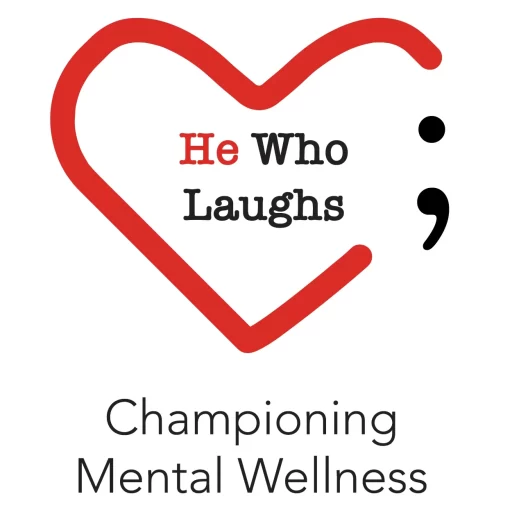It’s Okay to Not Be Okay is an invitation to lovingly hold grief, not fix it. It is a phrase that has become more common in the last several years. I know that my family and I were introduced to this particular phrase when we were gifted Megan Devine’s book. Little did I realize how impactful this particular book would be for me, my family, and how it would shape the face of He Who Laughs.
What does it mean to be okay? I think it is impossible to come up with a global response that is fitting for all. This particular inquiry is what I would consider, a generic check in. Depending on who you ask, the moment you ask it, and your relationship with the person, it will most likely dictate the truthfulness of the engagement. An individual’s truthfulness is also shaped by the individual’s ability to be vulnerable. Being vulnerable asks that a person share a belief or intimate feeling not knowing in return how it will be received. Imagine how difficult it might be to be exposed and sharing from your heart, only to then not feel seen, heard, or to be judged.
What obstacles can influence our ability to be vulnerable?
- Shame
- Fear
- Judgement from others
- Social expectations or relationships
- Previous life experiences, including trauma or loss
- Level of self awareness
- Economic obstacles or limitations
When someone bravely walks through the door of vulnerability there is always a cost. The cost of vulnerability can be financial, social, as well as emotional. In my own grief story, I realized early on that when the news of Isaac’s death was fresh and out for all to see, people were watching us and wanting to engage us. Some were genuinely grieving alongside of us and others were being nosy, simply wanting to to learn details of how he died, how would we respond to his loss as a family, and if we would remain “together” as family. All of a sudden, not only was our loss front and center, but so was our family. Nothing felt private and everything felt abrasive. The life we were thrown in felt foreign.
Our world turned upside down the day we lost our son, and Gabe lost his brother, his best friend. The truth is that the we could not function individually or as a family in our early grief. Complete and utter devastation is what reverberated through our life early on. We trusted people coming in and out of our home to help hold us together in those early days and weeks. These amazing humans held us in our most vulnerable moments. They knew the raw ache of our hearts. They also knew that we were not okay and never once tried to fix us. For many of those individuals it was the first time for them to experience loss of life by suicide. Isaac’s death forever change our life and the life of our family and friends.
Needing professional help and support is not weak.
There are instances when you might find yourself needing more support than just talking with a trusted confidant. It is perfectly normal to reach out to a counselor or clinician with specialty training that could assist you. For example, I used EMDR to help me in those early months when all I could do was wake each morning and say “my son is dead.” Those counseling sessions saved me and eventually made it possible over time for me to befriend my grief. I learned it was okay to not be okay and how I could best communicate those vulnerable moments.
If you or someone you know is in harms way, has access to a weapon or means to end their life, call for help immediately. Stay with that person until help arrives. Never assume a person with means and the intention to harm themselves are kidding, attention seeking, or would never do it. Assumptions have led to loss of life more times than I realized until I found our family as part of the statistics. Support options to program into your phone include:
- National Suicide Lifeline , available 24/7 at 800.273.8255
- Crisis Text Line (text HOME to 741741), available 24/7
- Calling 911 for immediate life and death situations
or
- Visit your local emergency room
- Reach out to your local mental health recovery board for programs, services, and supports options
As a mother, a parent, a social worker, and as a human being it is absolutely okay to not be okay. However, shoving our vulnerability down in an attempt to be strong only paralyzes us on the backside, landing us on a slippery slope. It’s Okay to Not Be Okay is a beautiful invitation to be vulnerable and truthful with ourselves. Layer in proper support and we can normalize mental wellness conversations.
What are some mental health resources you have found helpful?

I had to make to do lists every morning for a while with things like ” take a shower” and “eat”. I found that writing along with meeting with a councelor ( CBT, trama focus) helped me.
I am still working daily, so reading this post reminds me that I don’t have to be ok. Sometimes, just being is ok.
Yes, sometimes just being a human being versus a human doing makes the difference.
I also make lists to this day just to help me focus and to remind me that I have done enough on some days. Making the list also reminds me to include resting as a task. It is just as important as work and much needed for my mental wellness.